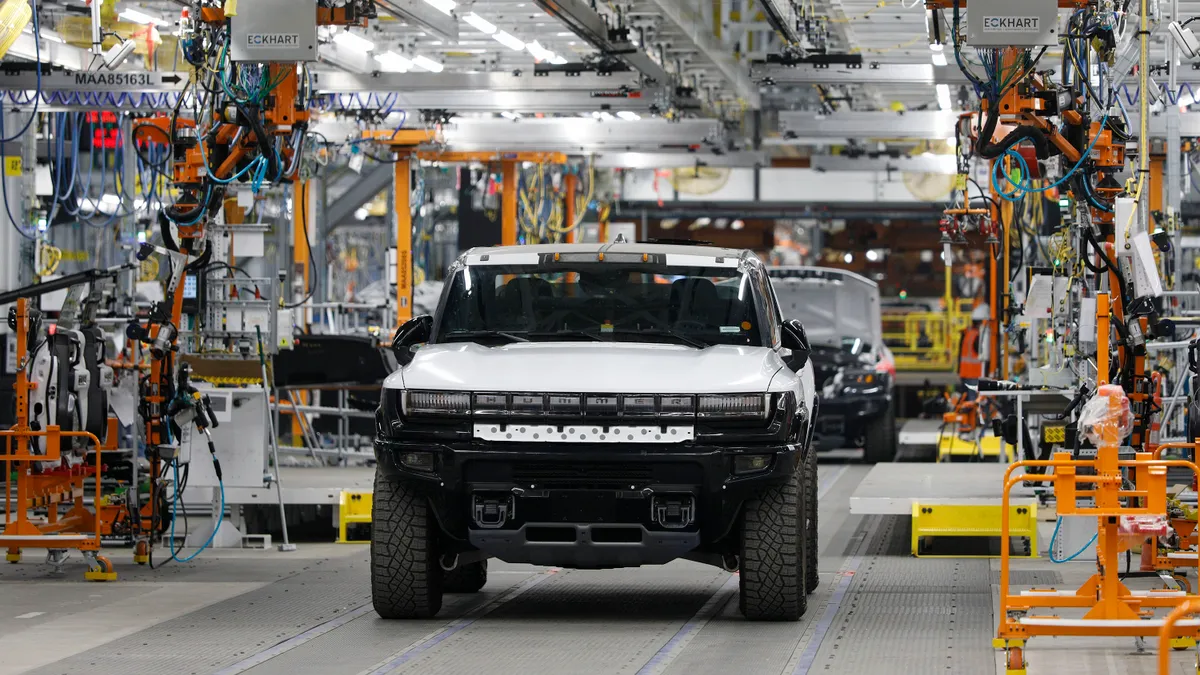Dive Brief:
- General Motors CFO Paul Jacobson reaffirmed the company’s 2021 profit outlook and said the company expects a more stable supply chain in 2022, “even if it’s not back to completely unconstrained” levels, he said at the RBC Capital Markets Global Industrial Conference on Friday.
- The Detroit, Mich.-based automaker still expects to deliver pre-tax profits between $11.5 billion and $13.5 billion, the range it shared in its second quarter earnings report last month. That was an increase from its original expectation of between $10 billion to $11 billion. The company also said 10% pre-tax margins for its North American business would be "quite achievable" next year, even as it continues investing in electric vehicles.
- Jacobson noted challenges from inflation, the delta variant, labor shortages and supply chain instability. Still, GM "does not want to drive a level of COVID austerity into the business" and “will not pull back its investment plans,” he told analysts.
Dive Insight:
Despite GM's optimistic outlook, during the second half of the year the impact on the company from the global semiconductor chip shortage will exceed earlier forecasts. Most U.S. executives originally thought the shortage would be a short-term concern, but now are preparing for it to persist well into 2022.
GM's deliveries in the third quarter could fall by 200,000 vehicles due to continued chip shortages, Jacobson said, a reduction that’s double what the company expected when reporting its second-quarter earnings.
“We’re still going to deliver a year that’s higher than what we originally thought coming into January,” Jacobson said; much of the shortage’s negative impact will occur during the third quarter.
The news of the reduced deliveries follows GM’s announcement last week that it will cut production hours at almost all of its North American manufacturing plants as a result of the chip shortage.
“Although the situation remains complex and very fluid, we remain confident in our team’s ability to continue finding creative solutions to minimize the impact on our highest-demand and capacity-constrained vehicles,” GM said in a Sept. 2 statement.
“As you know inventories have been very, very thin all year and that's going to give us a little bit of risk throughout the year,” Jacobson said at the conference. “It is primarily related to COVID in Southeast Asia.”
The semiconductor chip shortage will likely cost the global automotive industry $110 billion in revenue this year, a forecast from consultancy AlixPartners said.












